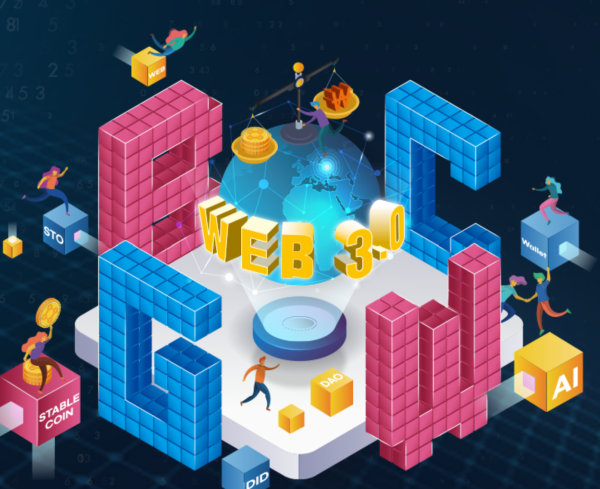
From November 4th to 5th, the 2025 Blockchain Promotion Week X Web 3.0 Conference was held at COEX, Seoul.
During the event, Media Shovel conducted an exclusive interview with Professor Vijayan Sugumaran.
Vijayan Sugumaran,the professor of MIS chair, decision and informaiton sciences in oakland university, who visits south korea regularly to collaborate with local professors and students, notes a rising enthusiasm among young researchers eager to address the ethical and economic challenges of automation.
As artificial intelligence reshapes industries across the globe, another technology — Blockchain — is quietly evolving beyond its cryptocurrency roots. Together, these two forces are redefining the architecture of the digital economy.
In south korea, a growing number of researchers and practitioners are exploring this convergence.
Their focus extends far beyond digital finance.
From healthcare to supply chain logistics, from education to Web3 governance, Blockchain applications are emerging as practical tools for transparency, traceability, and trust.
“Blockchain is no longer just a buzzword for investment or ICOs,” says one expert in the field. “Its real potential lies in integration — particularly with AI and intelligent agents that can interpret, predict, and act on data in real time.”
This marriage of AI and Blockchain marks a new phase of technological symbiosis.
Intelligent agents, trained through vast datasets, can anticipate changes and optimize systems before problems arise. When these agents operate within Blockchain networks, their predictions gain permanence and reliability.
In sectors such as energy, for example, AI can manage and balance loads dynamically, while Blockchain ensures every transaction remains transparent and verifiable. The result: smarter, cleaner, and more efficient power distribution.
Korea’s academic and industrial environment provides fertile ground for this evolution.
Universities like Sogang are investing heavily in interdisciplinary research — spanning business analytics, information systems, and AI management.
“AI will inevitably transform the workforce,” he acknowledges, “but it won’t simply replace people. It will redefine roles. Machines may take over repetitive work, but human judgment, creativity, and empathy remain irreplaceable.”
That philosophy extends beyond industry into culture. In art and the humanities, AI is already acting as a creative partner. Algorithms assist painters, writers, and musicians in exploring visual and conceptual possibilities that might have been unimaginable a decade ago.
Yet professor Vijayan is quick to point out that technology should complement, not dominate, the creative process. “AI can amplify inspiration,” he says, “but the essence of art — the human story — must remain our own.”
Still, the promise of AI depends on the integrity of its foundation: data. Biased or poorly managed datasets can distort results, leading to ethical dilemmas and loss of public trust. “Data governance is the cornerstone of responsible innovation,” he warns. “Without it, even the most sophisticated AI models risk amplifying inequality.”
This is where Blockchain reenters the conversation — as a safeguard of accountability. Its immutable ledger offers a way to track how data is collected, stored, and used.
When combined with AI’s adaptive intelligence, it creates systems that are both transparent and self-correcting — a framework that could redefine how societies manage digital information.
The path forward, however, is not without obstacles. Public skepticism remains high, especially after a wave of fraudulent schemes tarnished the image of cryptocurrencies. Governments, the expert argues, must act faster to regulate without stifling innovation. “Technology always moves ahead of policy,” he says, “but if we want a fair and inclusive digital future, we need governance that keeps pace.”
Asia’s major economies, including Korea and Japan, are taking cautious but deliberate steps in this direction.
They are investing in infrastructure, education, and digital literacy to prepare their populations for an AI-driven era.
“If these efforts continue,” the expert concludes, “AI and Blockchain together could form the backbone of a more transparent, efficient, and equitable global economy.”
In this unfolding landscape, one truth becomes clear: the future won’t belong to a single technology, but to the harmony between them — intelligence meeting integrity, automation meeting trust.